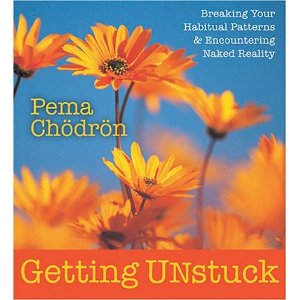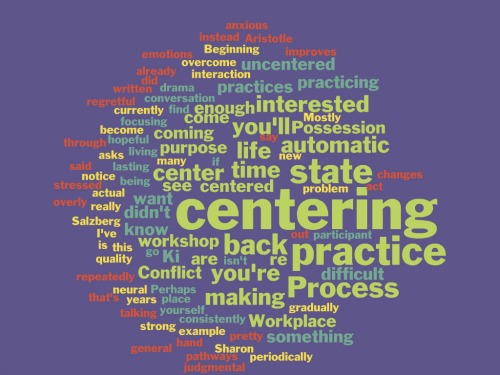- You're faced with an aggressive customer.
- You just heard about an unexpected change that could threaten your job security.
- You get triggered and let your anger drive you.
- You feel attacked in certain settings and take things personally.
- You hate losing and you fight to win every argument, regardless of consequences.
 One of the most interesting things about my workshops is that I teach skills everyone already knows. If you've been in a workshop with me, you know this to be true and you've even heard me say it.
One of the most interesting things about my workshops is that I teach skills everyone already knows. If you've been in a workshop with me, you know this to be true and you've even heard me say it.
We know we want to be centered and in control of our emotions in difficult moments. We know that putting ourselves in a mindset of inquiry is also really useful. And when I ask, "What would you like to say to this person so that they understand your positive intention?" coaching clients are usually clear, composed, and thoughtful in their message. We also know that putting ourselves in the customer/client/coworker/family member's place and seeing their perspective can absolutely turn a difficult situation around.
And yet....
And yet...
What keeps us from making these wise and purposeful choices in the heat of the moment? Again, when I ask participants about this, they know the answer:
- It's not second nature.
- It takes thinking about our true purpose for the interaction.
- It takes reinforcement and practice of a different kind than we've been doing.
We've been unconsciously practicing behaviors that lead us away from ourselves and our power. And these unconscious practices are reinforced every day by the culture we live in. And they are killing us--with stress, broken relationships, dysfunctional workplaces, unhappy homes, and much, much worse.
Making that wise choice in the heat of the moment takes practice of a different kind. It takes creating a new habit for the same situations that triggered the old unhelpful one. And you will know when the new habit is formed because it's as unconscious now as the old one used to be.
Come Back to the Breath
New habit formation takes time and practice. Books and articles aren't enough. The patterns are physical, mental and emotional and must be repatterned on all of those levels. As they were built over time, they'll also take time to change.
One of the simplest and most practical ways to begin is this: Come back to the breath.
Try this centering practice: Notice when you're holding your breath. It doesn't even have to be a conflict. For example, I almost always stop breathing when I:
- open the car door.

- open any door.
- lift something heavy.
- hear a loud sound.
- drop something.
- climb stairs.
And as soon as you notice, you will start breathing again--and the centered state will return. It's that simple.
Consciously, intentionally taking in air and letting it out is another way. Set reminders for yourself:
- Beginning of the day
- End of the day
- When you fasten your seatbelt
- At a red light
A recent participant said her centering practice is to breathe in to the count of 4, hold 8, and breathe out to the count of 7. She's done it so long, it's become second nature. She's developed a new habit, and she leads a more centered life.
It's really up to you. Sometimes a coach or partner can help. But it comes down to deciding the quality of life you want for yourself. You are practicing something now. Is it getting you what you want? If not.... You know the answer!
 Getting Unstuck
Getting Unstuck
In the meantime, one of my favorite audiobooks and teachers on getting unhooked from unconscious, unhelpful habits and forming new ones is, "Getting Unstuck" by Pema Chodron. I like the audiobook because you can hear her voice, too.
You know the answer.




Let’s discuss this post in the comments
Note: you don’t need to “log in” or “sign up” to comment. Simply enter your comment, then under the “sign up with Disqus” field enter your name. Then enter your email address and click the checkbox (that will appear) with the label “I’d rather comment as a guest.”